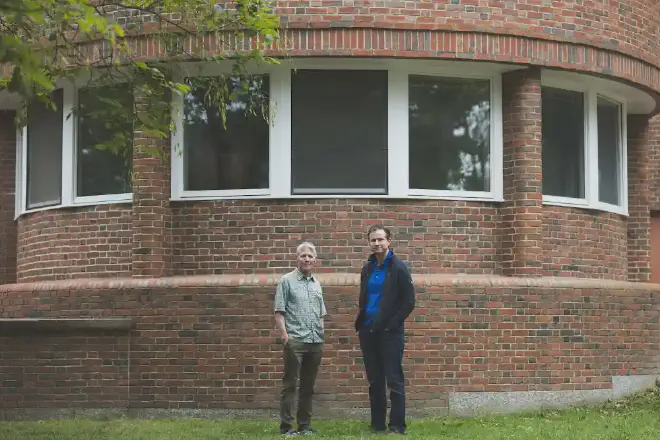

But warning voters beforehand that there may be false claims about the election, and providing them with information on election security measures through “prebunking,” can increase confidence in the results and decrease beliefs in voter fraud, according to a new study published in Science Advances.
“Prebunking is effective because it provides people with novel facts about how elections are secured,” said co-author Brendan Nyhan, the James O. Freedman Presidential Professor of Government at Dartmouth.
To examine if corrective information can change false beliefs in widespread election fraud, the research team conducted a series of studies in the United States and Brazil to evaluate perceptions about past and future elections.
The studies were conducted online in the U.S. before the 2022 midterm elections and in Brazil after its 2022 presidential elections. Each study contrasted the effect of prebunking with a credible sources treatment, which tests the effect of hearing from sources who might be the most persuasive to people who are inclined to be skeptical.
More than 5,500 participants from the two countries were surveyed online about their views on the credibility of elections via YouGov in the U.S. and Qualtrics in Brazil. Participants were randomly assigned to one of two treatment conditions or to a control group:
-
The first group received prebunking information with facts on election security measures in place in their country with a warning that others may make false claims to mislead them about an upcoming election. Prior studies have shown that exposure to corrective information can be effective at discerning fact from fiction. In the U.S., for instance, participants received information about how elections are secured via steps like testing voting machines, validating mail ballots, and using secure dropboxes to collect ballots.
-
The second group was assigned to a “credible sources” treatment in which they received information about allies of either Trump in the U.S. in 2020 or Bolsonaro in Brazil in 2022 or credible neutral sources who affirmed the previous election result as legitimate (such as Republican judges and officials, Bolsonaro’s son, and the Brazilian election agency).
The first study was conducted in the U.S., the second in Brazil, and the third was also administered in the U.S.
Broadly speaking, in the U.S., both the prebunking and credible sources proved effective.
In Brazil, prebunking seemed to be more effective than information from credible sources, increasing confidence in the 2022 and 2026 elections and decreasing beliefs about the prevalence of election fraud in both.
“These results are encouraging,” says co-author John Carey, the John Wentworth Professor in Social Sciences and interim dean of the Faculty for Arts and Sciences. “You often hear that people aren’t responsive to facts or interested in details, but our experiments increased the accuracy of beliefs, even among those who started out most committed to ideas that aren’t supported by evidence.”
Brian Fogarty at the University of Notre Dame, Marília Gehrke at the University of Groningen, and Jason Reifler at University of Southampton, also contributed to the study.
What is prebunk? #
Prebunk refers to the practice of proactively addressing and countering misinformation before it spreads. This approach involves educating individuals about potential false narratives or misleading information that may arise, thereby equipping them with the knowledge to recognize and reject such claims when they encounter them.
The concept of prebunking is often used in the context of public health, politics, and social media, where misinformation can quickly gain traction. By providing accurate information and context ahead of time, organizations and individuals aim to reduce the impact of misleading narratives and foster critical thinking among audiences.
Prebunking is a preventive strategy designed to combat misinformation by preparing people to identify and question false claims before they become widespread.
Citation #
- The paper Prebunking and credible source corrections increase election credibility: Evidence from the US and Brazil was published in Science Advances Authors: John M. Carey, Brian Fogarty, Marília Gehrke, Brendan Nyhan & Jason Reifler
Prebunking and credible source corrections increase election credibility: Evidence from the US and Brazil John M. Carey https://orcid.org/0000-0002-1426-1565, Brian Fogarty https://orcid.org/0000-0001-9563-218X, Marília Gehrke https://orcid.org/0000-0003-3538-1600, Brendan Nyhan https://orcid.org/0000-0001-7497-1799, and Jason Reifler https://orcid.org/0000-0002-1116-7346Authors Info & Affiliations Science Advances 29 Aug 2025 Vol 11, Issue 35 DOI: 10.1126/sciadv.adv3758
- The article Public Trust in Elections Increases With Clear Facts, with Amy Olson verification was published in the Dartmouth’s website
Contact [Notaspampeanas](mailto: notaspampeanas@gmail.com)

